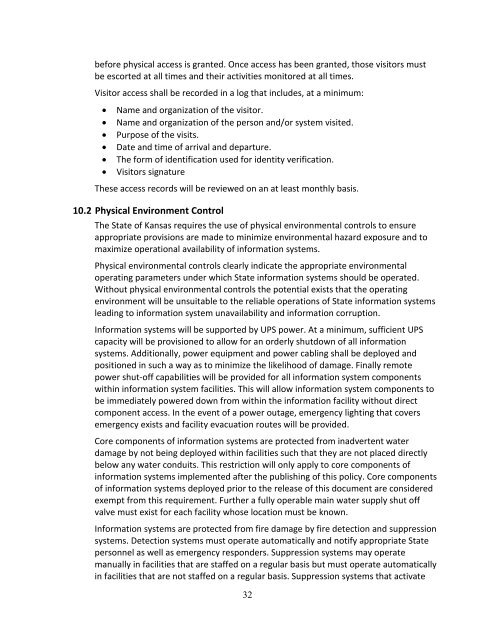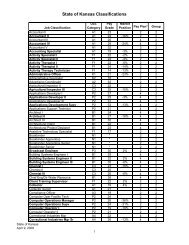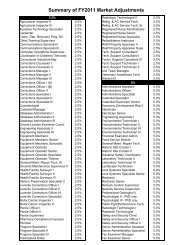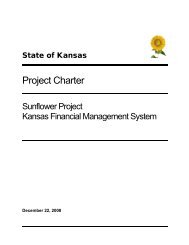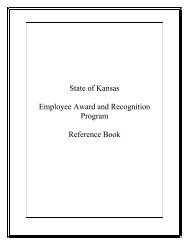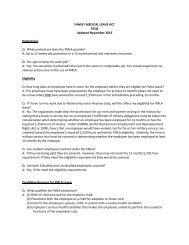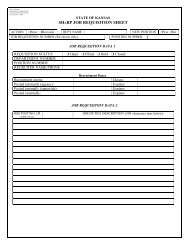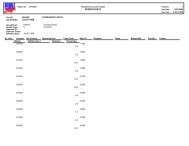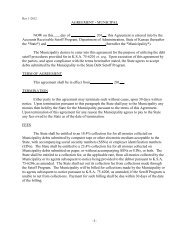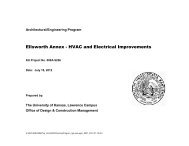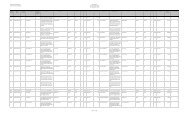Policy 7230A - Department of Administration
Policy 7230A - Department of Administration
Policy 7230A - Department of Administration
Create successful ePaper yourself
Turn your PDF publications into a flip-book with our unique Google optimized e-Paper software.
efore physical access is granted. Once access has been granted, those visitors must<br />
be escorted at all times and their activities monitored at all times.<br />
Visitor access shall be recorded in a log that includes, at a minimum:<br />
• Name and organization <strong>of</strong> the visitor.<br />
• Name and organization <strong>of</strong> the person and/or system visited.<br />
• Purpose <strong>of</strong> the visits.<br />
• Date and time <strong>of</strong> arrival and departure.<br />
• The form <strong>of</strong> identification used for identity verification.<br />
• Visitors signature<br />
These access records will be reviewed on an at least monthly basis.<br />
10.2 Physical Environment Control<br />
The State <strong>of</strong> Kansas requires the use <strong>of</strong> physical environmental controls to ensure<br />
appropriate provisions are made to minimize environmental hazard exposure and to<br />
maximize operational availability <strong>of</strong> information systems.<br />
Physical environmental controls clearly indicate the appropriate environmental<br />
operating parameters under which State information systems should be operated.<br />
Without physical environmental controls the potential exists that the operating<br />
environment will be unsuitable to the reliable operations <strong>of</strong> State information systems<br />
leading to information system unavailability and information corruption.<br />
Information systems will be supported by UPS power. At a minimum, sufficient UPS<br />
capacity will be provisioned to allow for an orderly shutdown <strong>of</strong> all information<br />
systems. Additionally, power equipment and power cabling shall be deployed and<br />
positioned in such a way as to minimize the likelihood <strong>of</strong> damage. Finally remote<br />
power shut-<strong>of</strong>f capabilities will be provided for all information system components<br />
within information system facilities. This will allow information system components to<br />
be immediately powered down from within the information facility without direct<br />
component access. In the event <strong>of</strong> a power outage, emergency lighting that covers<br />
emergency exists and facility evacuation routes will be provided.<br />
Core components <strong>of</strong> information systems are protected from inadvertent water<br />
damage by not being deployed within facilities such that they are not placed directly<br />
below any water conduits. This restriction will only apply to core components <strong>of</strong><br />
information systems implemented after the publishing <strong>of</strong> this policy. Core components<br />
<strong>of</strong> information systems deployed prior to the release <strong>of</strong> this document are considered<br />
exempt from this requirement. Further a fully operable main water supply shut <strong>of</strong>f<br />
valve must exist for each facility whose location must be known.<br />
Information systems are protected from fire damage by fire detection and suppression<br />
systems. Detection systems must operate automatically and notify appropriate State<br />
personnel as well as emergency responders. Suppression systems may operate<br />
manually in facilities that are staffed on a regular basis but must operate automatically<br />
in facilities that are not staffed on a regular basis. Suppression systems that activate<br />
32


